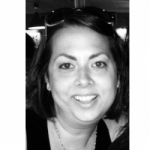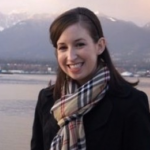How Should We Be Ill? (A Toolkit of Identities for Living With Cancer)
March 19, 2015
By: Chad Hammond
It’s pretty standard for young adults to experiment with different lifestyles and identities as we figure out who we want to be. There are times we feel certain we’ve found our calling, only to question it all again months later. Falling into cancer can flare up these acute moments of uncertainty in the form of a question: how should I be ill? People’s energies often pour into orienting themselves to a life laid sideways. There’s no one right way to be ill, but a few resources might help people to find their path.
Below is a very modest list of identities pulled from stories of young adults as they oriented themselves toward life with cancer. They are best used creatively and situationally—made into your own and used alongside other important identities you hold dear. Ask what they may do for you and discuss them with your caregivers. Add these to your toolkits if you wish, whether it’s an anchor for when the whirlwinds make you dizzy, or a breath of fresh air for when you feel confined to one future, one story, one destiny.
1. Public media talk the most about “survivors,” but not necessarily of the Destiny’s Child ‘I’m not gon’ give up’ variety. It can variously mean to ‘beat’ cancer, do one’s best, have strength inside to endure cancer, simply ‘survive,’ or become a better person as a result of having cancer.
2. “Fighters” pit adversaries in a battle over the person’s body. Wars may be waged between healthy and cancerous cells, between the wills of patients and caregivers (like political rivalries or advocacy campaigns), or within oneself (like athletes testing their own limitations). As much as today’s fighters are inspired by the chiselled, stoic behemoths of Hollywood, they are compassionate people carrying their own doubts, fears, and tears.
3. More of a formal term these days (like client or customer), “patients” are nevertheless seen as being ‘patient,’ passive, sitting still and taking their medicine. That’s not always true—patients keep appointments, make decisions, memorize details, liaison between caregivers, and so much more. Still, it doesn’t have a roaring force to it, but that’s okay; sometimes we can’t be at the helm of our lives and need to place it in the hands of some other person or power.
4. The word “victim” often gets a bad rep, as an admittance of weakness and vulnerability. But it can be used to raise awareness of wrongdoings or injustices, the effects of which may be ongoing and may need to be recognized by others. Life after treatment can feel this way, when people are sent back into a world that assumes cure means justice served.
5. “Sojourners” are people travelling abroad, exploring new lands and learning strange medical languages. Sounds exciting, but the knowledge gained from sojourning is sometimes begrudged. Then there are “exiles” who suffer forced displacements to hospitals or their bedrooms—banished from public life, confined to an unfriendly environment, foreign or familiar.
6. So much may change over the cancer journey that it follows the path of the “phoenix,” destroyed and reborn from the ashes, cleansed or purified by the flames of suffering. Above all, this cycle of renewal reflects the fullest extent cancer can transform someone.
7. Other identities emphasize people’s eccentric natures. I have heard of cancer “divas” and “vixens,” who treat cancer like other annoying experiences—with attitude. They often share with “tricksters” a penchant for defiance and unpredictability arising from their temperamental and unconventional personalities. Tricksterdom is a fitting word to describe the tragicomic collision of the idea young adults are in prime health with the reality that too many are ill. Here’s a research resource on tricksterdom co-written by yours truly: https://psycnet.apa.org/psycinfo/2014-33532-001/
8. The cancers young adults get are often rare and unusual, inviting descriptions of “anomalies” or “enigmas,” even “mutants,” who defy biology textbooks and mystify oncologists. These identities can further alienate people who feel out of sorts, but they can also give voice to people from the margins, wanting to be recognized and accepted as different or exceptional.





